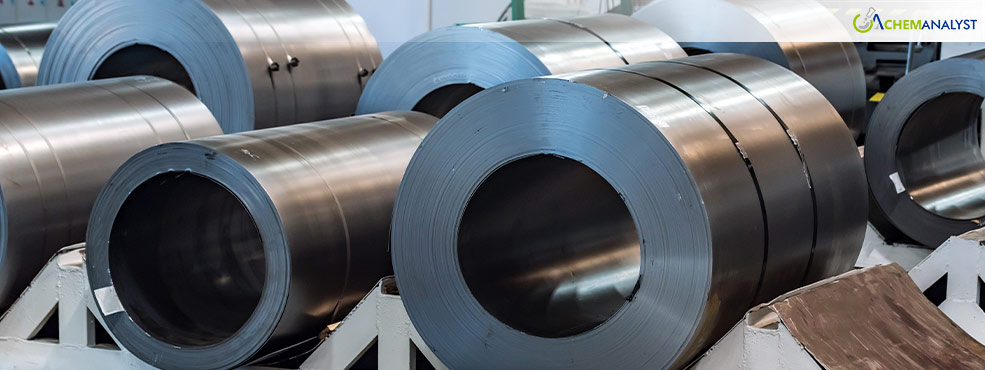Welcome To ChemAnalyst

The Hot Rolled Coil (HRC) market shows contrasting patterns across major regions, with U.S. prices shows resilience while European markets face continued pressure amid weak demand. The HRC sector reflects broader economic uncertainties, with producers and buyers adapting their strategies to evolving market conditions.
For the week ending November 15th, U.S. HRC prices recorded a modest increase of 0.4% in the spot market, while German HRC prices declined by 2%, highlighting the divergent market dynamics. This trend has positioned U.S. domestic prices at a premium compared to import offers, a significant shift from the price parity observed in late summer.
In the U.S. market, major producers have taken proactive steps to strengthen HRC pricing. Nucor raised its weekly consumer spot price for HRC, while its subsidiary CSI implemented a base price increase. Cleveland-Cliffs' decision to close its December HRC order book for spot purchases while maintaining contract bookings indicates strategic inventory management. Production lead times for HRC remain in the mid-range, suggesting stable operational conditions.
According to the latest data from the AISI, domestic raw steel production rebounded last week after a decline in the previous week. However, the weekly production levels continue to be among the lowest recorded this year.
The European market, particularly in Germany, faces more challenging conditions. Buyers are delaying in restocking despite low inventory levels, as current stocks remain adequate for subdued end-user demand. The automotive sector, a key HRC consumer, faces significant headwinds, exemplified by Volkswagen's downward adjustment of its 2024 outlook and planned plant closures in Germany. The impact of trade defence measures on HRC imports has been less pronounced than expected, with substantial volumes still in the pipeline or at ports.
Southern European HRC markets mirror the broader regional trend, with prices showing minor fluctuations and limited transaction activity. Import offers remain uncompetitive compared to domestic HRC prices, though this has not translated into increased local demand. European producers hope that reduced imports and greater reliance on local suppliers might support HRC prices, despite persistent demand weakness.
As per ChemAnalyst, HRC prices are expected to follow divergent paths through early 2025, with U.S. prices potentially seeing further modest gains in Q1 2025, supported by strategic production management and stable demand. However, European HRC prices might face continued pressure until at least early 2025, with recovery dependent on clearing excess inventory and potential improvement in automotive sector demand. The analyst firm suggests that while regional price disparities may persist, global HRC market stability will largely depend on the pace of manufacturing sector recovery and the effectiveness of trade measures in key markets.
We use cookies to deliver the best possible experience on our website. To learn more, visit our Privacy Policy. By continuing to use this site or by closing this box, you consent to our use of cookies. More info.
